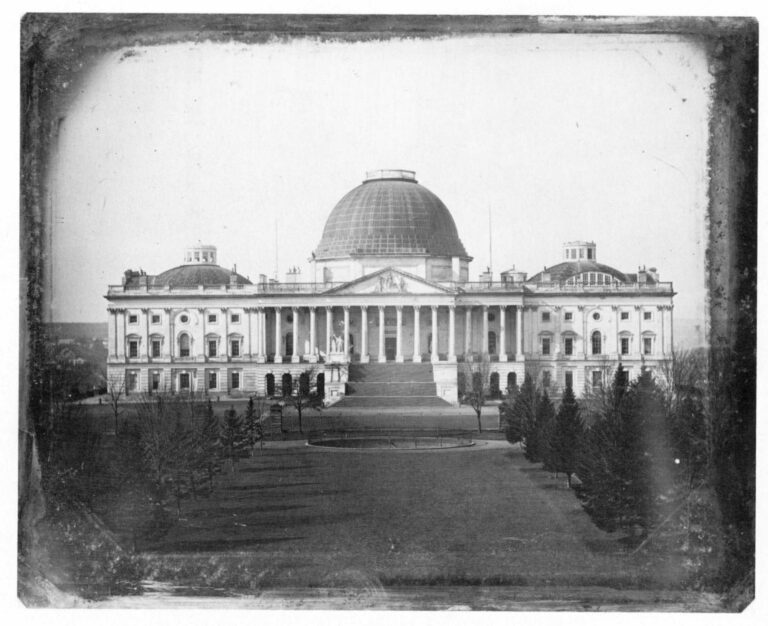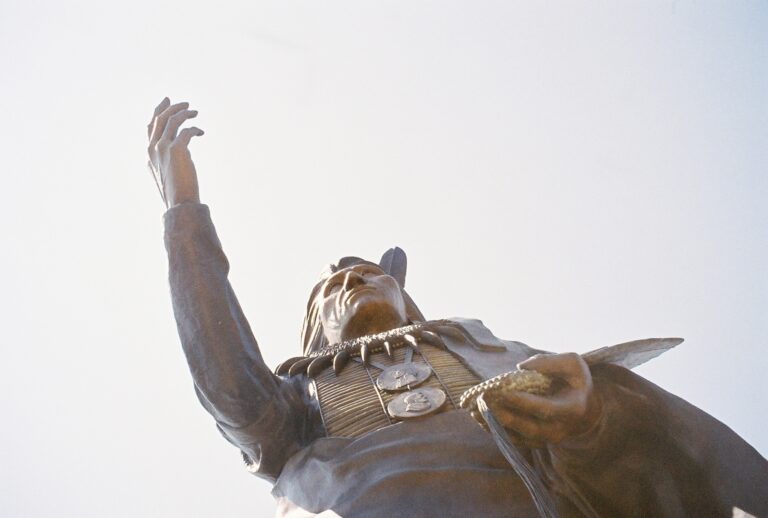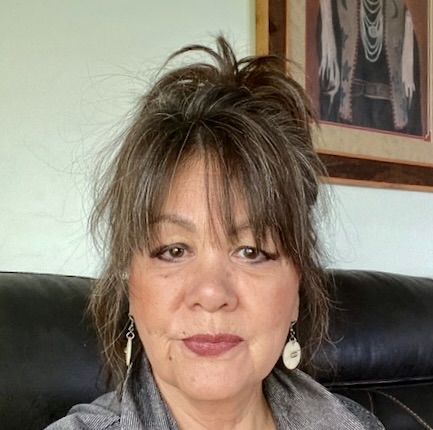OPEN CALL FOR DOCUMENTARY SHORT PROPOSALS ON INDIGENOUS LEGAL HISTORY
The faculty in the Department of History and College of Law at the University of Nebraska-Lincoln, Vision Maker Media and the Institute for Policy, Politics, Law and History are leading the Law and Race Initiative funded by the Mellon Foundation.
Image from Home From School.
Indigenous Legal History
Application period:
Open
April 1, 2023
Close
October 31, 2024
The faculty in the Department of History and College of Law at the University of Nebraska-Lincoln, Vision Maker Media and the Institute for Policy, Politics, Law and History are leading the Law and Race Initiative funded by the Mellon Foundation.
Together, we are seeking producers interested in making a short documentary about Indigenous legal history. See below for topic choices, or submit your own topic.*
Mellon Foundation funds support the production of two (2) short documentaries produced by Native filmmakers. Production costs for each film may be granted by VMM in amounts up to $25,000.
Informal, pre-proposal consultations may be requested with faculty in the Department of History and College of Law at UNL. Please email Katrina Jagodinsky kjagodinsky@unl.edu to schedule a meeting. Proposal topics must be on U.S. and/or Alaska Native Indigenous legal history.


CRITERIA
Vision Maker Media and the UNL Department of History and College of Law will select proposals for two documentaries that are 40 minutes or less in length. Producers should have documentary filmmaking experience and be comfortable working collaboratively with academic experts and/or advisors in the making of the films. UNL Department of History and College of Law researchers will aid in conducting research for both productions free of charge. Proposed documentaries should be completed within 12 months of the execution of an agreement with Vision Maker Media.
categorY:
-Production (up to $25,000)
For more information or questions, contact info@visionmakermedia.org or 402-472-3522.
ELIGIBILITY
- Native filmmakers must maintain artistic, budgetary and editorial control over their proposed documentaries and own the copyright in and to the finished film.
- The proposed project must be a documentary of 40 minutes or less.
- Accepted topics for the Law and Race Initiative funded by the Mellon Foundation are topics about Indigenous history and legacy of Law & Race.
- The proposed documentary must be ready for production immediately upon award of the grant (funding supports production to completion).
- Production timeline must result in completion of the documentary and all supplementary materials within 12 months of receiving the 1st payment of the awarded funding.
- All applicants must be over 21 years of age, and a U.S. citizen or legal U.S. resident.
- Proposals must show significant Native American involvement in production, whether Above the Line, Below the Line or both.
- Eligible proposals should meet Vision Maker Media’s mission of empowering and engaging Native people to share stories.
NOT ELIGIBLE
- Commercial Programs.
- Industrial or promotional films and videos.
- Student productions of any sort, such as thesis films.
- Programs intended solely for theatrical release.
- Filmmakers or production entities that are foreign-based, owned or controlled.
- Programs funded in part by a government entity or group featured in the content of the program.
SELECTION PROCESS
Vision Maker Media and the Department of History and College of Law at University of Nebraska-Lincoln convenes a panel of academics, public media professionals, filmmakers, and faculty to evaluate proposals and work samples. Selection committees consider: understanding and relevance to the scope of the Law and Race initiative, the representation of Native cultures and experiences, the perspectives of Native Americans and Alaska Natives, and how well the overall proposal/application meets Vision Maker Media’s mission—empowering and engaging Native people to share their stories. We envision a world changed and healed by understanding Native stories and the public conversations they generate. A key strategy for this work is in partnerships with Tribal nations, Indian organizations and Native communities.
Reaching the national public and a global market is the ultimate goal for the dissemination of Native public media that shares Native perspectives with the world.
Following in-depth evaluation and discussion, the panel recommends projects for support. Recommendations are subject to approval by the Vision Maker Media Board of Directors.
When evaluating, the selection panel weighs the strengths of the following factors for project proposals: Strength of story, production team, budget, timeline, previous experience, quality of work samples, and meeting the scope of the Law and Race Initiative’s focus on Indigenous legal history.
CONTRACT TERMS
- Projects that are selected for funding and have not previously received funding from VMM may be required to have a fiscal sponsor or agent.
- A copy of Producer’s or Fiscal Sponsor/Agent’s completed W-9.
- If applicable, a draft of the Fiscal Agent agreement before signature. If an agreement has already been signed, send a copy of the agreement between you and your fiscal agent(s), current or former, for the Program.
- Verification of one Production Account for all Production funds and identification of two authorized signatories.
- Insurance: evidence of adequate insurance in the form of certificates: General Liability & Worker’s Compensation.
- Web Publicity Materials: for the purpose of creating a web page on visionmakermedia.org for the Program, which includes the following: Head Shots of Producer(s) (for multiple Producers – headshot should be together), professionally photographed and processed color images at a resolution of at least 300 dpi (printable at a minimum size of 5”x7”) to be delivered in PSD or JPG format, suitable and cleared for print and web publicity.
*Topic choices
We are seeking producers interested in developing short documentaries on any of the following stories, or submit your own topic about Indigenous history and legacy of Law & Race. The Department of History and College of Law at UNL will aid in conducting research for both documentaries free of charge.
Yaqui woman Lucía Martínez navigated the borderlands slavery regime of the Arizona-Sonora region in the second half of the nineteenth century and bore three children to a territorial Senator who had held her as a servant in his household between the ages of ten and eighteen. When Woolsey tried to keep her daughters from her in 1871, Martínez challenged him in court, becoming the first known Indigenous woman to file a claim in Arizona’s territorial courts. Her descendants nominated her to the Arizona Women’s Hall of Fame in 2021 and remember her as a champion despite her marginalized legal status.
Miscegenation laws banned inter-racial marriages throughout much of the United States prior to the Supreme Court ruling overturning those bans in the 1967 Loving v Virginia decision. Indigenous women who bore children with white fathers faced grave challenges in securing the futures of children deemed illegitimate under the law. Juana Walker, daughter of an Akimel O’odham mother and American father, and Rebecca Graham, daughter of a Duwamish mother and American father, both challenged such laws when they claimed inheritance rights to their father’s estates in 1892 and 1894. Their cases demonstrate the contentious views of Indigenous and non-Indian Westerners who shared both intimate relationships and animosities at the end of the nineteenth century.
Sauk Suiattle woman Louisa Enick secured a public domain allotment late in the nineteenth century that allowed her to live and raise her children on sacred and secure homelands between the peaks of the North Cascade Mountains in what is northern Washington today. Along with her Sauk Suiattle neighbors, Enick filed and maintained her claim into the early twentieth century, but shortly before her death, federal officials dismissed her land claims and surveyed Sauk Suiattle lands to establish the Mt. Baker-Snoqualmie National Forest. Enick and her descendants struggled to retain title, but lost a bureaucratic battle with devastating consequences. Despite this blow, Enick’s relatives and tribe continue to persist in their homelands today and are seeking means to recover land claims like Louisa Enick’s in negotiation with the federal and state governments.
Standing Bear’s 1879 effort to return to his Ponca homelands in Nebraska after being forcibly removed to Indian Territory is a compelling story that casts a long shadow in Great Plains history. What has been overlooked in that shadow is that Standing Bear’s legal case had its precedent in the 1868 trial of Moses Keokuk, a Sac and Fox leader who successfully sued an Indian agent in Lawrence, Kansas for trying to keep him from leading a delegation to meet with officials in Washington, D.C. Standing Bear’s legal arguments echoed Keokuk’s nearly verbatim, but Judge Dundy failed to follow the standard script, ignoring nearly a century of federal Indian law and local legal practice that recognized Native people’s rights in American law when he instead asked himself whether Native people were human. After Standing Bear’s case, which recognized his human right to mobility but stripped him of his status as a Native person, other Native men similarly sued Indian agents for confining them to reservations. Standing Bear’s case is better understood in the light of cases before and after his, all of which reveal Indigenous people’s sophisticated leveraging of the law in the years immediately following the Civil War.
As the federal Indian boarding school system expanded across the American West after Carlisle was established in 1879, Native parents developed creative strategies to resist coercive child removal. In 1885, Tlingit parents successfully used habeas corpus to force Alaska boarding school officials to return their children. Judges found it difficult to justify compulsory attendance and other Native families followed suit, using habeas to challenge boarding schools in Washington, New Mexico, Iowa, Kansas, and Nebraska into the twentieth century. Each of these stories reveals that Indigenous resistance and legal sophistication prompted federal reform and brings new questions to bear on current investigations into boarding school policy and abuses.
public media fund
Supporting native media
Application period:
CLOSED
Vision Maker Media’s call for film and television production proposals for its Public Media Fund was January 4, 2022 to February 11, 2022. VMM seeks public media film and television projects that are intended and appropriate for Public Media Television Broadcasting, including Corporation for Public Broadcasting (CPB) digital and streaming platforms, that represent the cultures, experiences, and perspectives of Native Americans and Alaska Natives.
Support for the Vision Maker Media Public Media Fund is provided by the Corporation for Public Broadcasting.
Creative shorts fellowship
Application Period:
Closed
The Creative Shorts Fellowship supports Emerging Native filmmakers to produce a short film: documentary, drama, experimental, or animation piece; and supports a mentorship with a career professional film producer or director.
Emerging Native filmmakers find their own mentor for their project. Film professionals, Native or non-Native, may also submit a proposal—following criteria and eligibility—to mentor an Emerging Native filmmaker in the production of that emerging filmmaker’s short film. Emerging Native filmmakers must choose their mentor prior to applying and film professionals must choose their mentee prior to applying. Topic ideas may be about Native cultures, values, histories, contemporary life, environmental justice, social justice, youth, elders, and/or Native empowerment.
Selected shorts projects will be notified Spring 2022. For more information or questions, contact visionmaker@unl.edu or 402-472-3522.
Finished Acquisitions
Application period:
open year round
Vision Maker Media seeks provocative and engaging completed programs from independent or public television producers that represent the experiences, values and cultures of Native Americans and Alaska Natives.
Applicants will be required to create a user account and sign up. If you have any problems with the online application process, please contact Vision Maker Media at visionmaker@unl.edu or call 402-472-3522.

